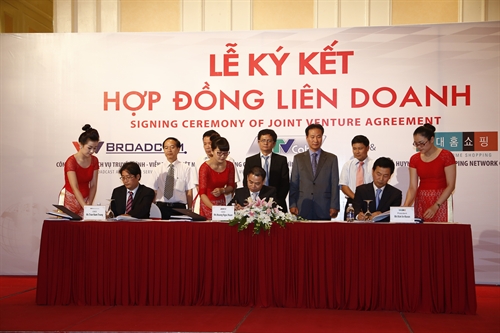Bui Duc Giang
PhD in law[1]
On June 26, 2015, the State Bank of Vietnam released Circular No. 07/2015/TT-NHNN on bank guarantees (Circular 07) which replaces Circular No. 28/2012/TT-NHNN dated October 3, 2012. The new text contains various changes to the old legal framework[2]. This article focuses on some aspects relating to guarantees issued by Vietnamese credit institutions in favor of offshore entities.
Contractual relationships
A bank guarantee may be issued in favor of the beneficiary by a Vietnamese bank direct or by a local bank in the beneficiary’s country against the counter-undertaking of a Vietnamese bank.
Bank guarantee issued in favor of the beneficiary by a Vietnamese bank direct and the contractual relationships that arise
The buyer (B) in London contracts to buy goods or services from the seller (S) in Hanoi. The contract calls for a bank guarantee to be issued in favor of B by a Vietnamese bank direct. The following diagram illustrates the three contractual relationships that arise:
(1) Contract of sale between B and S.
(2) Agreement between S and the Vietnamese bank containing S’s compulsory acknowledgement of the debt paid in lieu in favor of the Vietnamese bank.
(3) Bank guarantee between the Vietnamese Bank and beneficiary B.
Bank guarantee issued in favor of the beneficiary by a local bank in the beneficiary’s country against the counter-undertaking of a Vietnamese bank and the contractual relationships that arise
The buyer (B) in London contracts to buy goods or services from the seller (S) in Hanoi. The contract calls for a bank guarantee to be issued in favor of B by a local bank in B’s country. The following diagram illustrates the four contractual relationships that arise:
(1) Contract of sale between B and S.
(2) Agreement between S and the Vietnamese Bank containing S’s compulsory acknowledgement of the debt paid in lieu in favor of the Vietnamese bank.
(3) Counter-undertaking by the Vietnamese Bank in favor of London Bank.
(4) Bank guarantee between London Bank and beneficiary B.
Governing law
Under Article 8 of Circular 07, “in the case of a guarantee involving a foreign element, the parties may agree, in accordance with the law of Vietnam, on the applicable law and the body for dispute resolution (including foreign courts or foreign commercial arbitrations) to resolve disputes in connection with this guarantee transaction”. As such, when a guarantee involves a foreign element, the parties may agree that it is governed by a foreign law and that disputes arising out of or in connection with it shall be settled by a foreign court or a foreign arbitration.
Pursuant to Article 758 of the Civil Code, “a civil relation involving a foreign element means a civil relation in which a least one of the participating parties is a foreign body, organization or individual or is an overseas Vietnamese, or a civil relation between participating parties being Vietnamese citizens or organizations but the basis for the establishment, modification or termination of such relation was in compliance with the law of a foreign country, or such basis arose in a foreign country, or the assets involved in the relation are located in a foreign country”. For instance, when the beneficiary of a guarantee issued by a Vietnamese credit institution is an offshore entity, the guarantee may be governed by a foreign law.
Furthermore, Article 8 of Circular 07 expressly allows the parties to a bank guarantee, counter-guarantee, guarantee confirmation or joint guarantee to agree on the application of commercial practice as stipulated in Article 3.4 of the Law on Credit Institutions. This latter provides that such commercial practice shall include the international commercial practice issued by the International Chamber of Commerce (the ICC) and other commercial practice, provided it is not contrary to the laws of Vietnam. In the area of bank guarantees, the most notable rules of the ICC include the ICC’s Uniform Rules for Demand Guarantees (URDG) No. 458 and 758[3]. In practice, the URDG[4] has been used a great deal in guarantees issued by Vietnamese banks in favor of offshore entities. In this regard, it is noteworthy that domestic banking law does not recognize first demand guarantees in that the obligation to pay is ordinarily subject to proof of default on the part of the principal debtor.
In the absence of an agreement on the applicable law, the traditional rule under Vietnamese law is that the governing law is the law of the country in which the contract is performed (Article 769 of the Civil Code). Circular 07 does not explicitly address the place of performance. Under Article 284.2 of the Civil Code, unless otherwise stated, the place of performance shall be the place of location of the head office of the creditor (i.e. a debtor must seek out his creditor). In other words, the applicable law will be the law of the country in which the beneficiary of the guarantee has its registered head office. As this is particularly in favor of the offshore creditors, onshore banks would be well advised to make express provision for the governing law in each of the relevant contracts if they do not wish their guarantees to be subject to the law of those creditors.
 |
| Clients make transactions at VietinBank Branch in Vientiane, Laos __Photo: Tran Viet/VNA |
Jurisdiction
As mentioned above, Article 8 of Circular 07 allows the parties to choose a foreign court or foreign commercial arbitration to resolve disputes in connection with a guarantee involving a foreign element.
Pursuant to Article 405.2 of the Civil Procedure Code, “a case involving a foreign element shall be a case in which at least one of the parties concerned is a foreign person, an overseas Vietnamese, or the civil relations between those parties being Vietnamese citizens, bodies or organizations but the basis for the establishment, modification or termination of such relations were in compliance with the law of a foreign country, or such basis arose in a foreign country, or the assets involved in the relations are located in a foreign country”. The concept of foreign person in this definition should include an offshore entity in light with Article 405 and seq. of the Civil Procedure Code.
Under Articles 410.1 and 35.1(a) of the Civil Procedure Code, if the defendant is the issuing bank, the dispute may be referred to a Vietnamese court. The parties would be well advised to make express provision for the jurisdiction in each of the relevant contracts.
Language of bank guarantees
Article 7 of Circular 07 deals specifically with the question of language of bank guarantees. In principle, documents used in guarantee documents (agreements for the issuance of guarantees between banks and principal debtors and guarantee letters or contracts) must be made in Vietnamese. In the case of a guarantee involving a foreign element, the parties are permitted to agree on use of a foreign language but the documents must be translated into Vietnamese (certified by the lawful representative of a credit institution or foreign bank branch), accompanied by the foreign language version if requested by competent bodies.
As such, when the beneficiary is an offshore entity, the guarantee may be made exclusively in a foreign language. Only in case a competent state body so requests, a Vietnamese translation must be prepared. Such state bodies may include the Banking Supervisory Division of the State Bank of Vietnam (which exercises supervision and inspection of the operation of issuing guarantees by banks) or a competent court (in case disputes arising in connection with the guarantee are settled by it)[5].
Foreign exchange matters
Pursuant to Article 4 of Circular 07, “any guarantee in foreign currency issued by a credit institution or foreign bank branch must be consistent with the scope of foreign exchange activities of each type of credit institution or foreign bank branch on the domestic market and international market. A credit institution or foreign bank branch shall only provide guarantees in foreign currency to organizations or individuals in respect of lawful financial obligations in foreign currency in accordance with provisions of law”.
Basically, this means that issuance of guarantees in foreign currency by banks must be in line with their licensed scope of activities and that the guaranteed obligations must be lawful financial obligations. Those provisions also implicitly validate payment of the guaranteed sum in foreign currency in favor of the offshore entity. Such payment is likely to qualify as a payment in a current transaction under Article 4.6(g) of the Ordinance on Foreign Exchange.-









